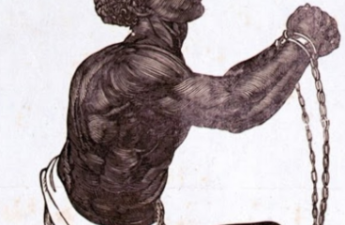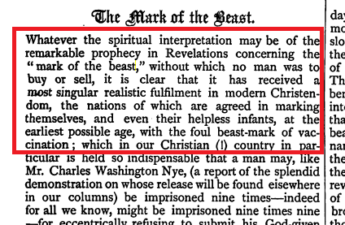
See also:
Health: It’s About Nutrients — NOT Vaccine Antibodies
Demolishing the Antibody Narrative: Measles Immunity can be Attained with ZERO Antibodies
Demolishing the Antibody Narrative: HIV Antibodies DO NOT Combat HIV
Continuing our assault on the blind faith of vaccine-induced antibodies as the cure-all for disease, we turn to a study that concludes that antibodies are “neither needed nor sufficient for protection” from neurotropic vesicular stomatitis virus (VSV).
(We have already discussed antibodies being unnecessary for measles and in Dr. Merrill W. Chase’s experiment. Are we seeing a pattern yet?)
First, what is VSV? In the same family as rabies,
Vesicular stomatitis is a viral disease which primarily affects horses, cattle, and swine. The agent that causes vesicular stomatitis, VSV, has a wide host range and can occasionally infect sheep and goats. In affected livestock, VSV causes blister-like lesions to form in the mouth and on the dental pad, tongue, lips, nostrils, hooves, and teats. These blisters swell and break, leaving raw tissue that is so painful that infected animals generally refuse to eat and drink and show signs of lameness. Severe weight loss usually follows, and in dairy cows a severe drop in milk production commonly occurs. Affected dairy cattle can appear to be normal and will continue to eat about half of their feed intake.
U.S. Department of Agriculture, Vesicular Stomatitis (Last Modified: Nov 14, 2023). Retrieved November 15, 2023, from https://www.aphis.usda.gov/aphis/ourfocus/animalhealth/animal-disease-information/cattle-disease-information/vesicular-stomatitis-info
Back to the study (probably performed in 2011). In 2012, Medical News Today published an article titled “No Antibodies Required For Immunity Against Some Viruses.” It reads:
A new study turns the well established theory that antibodies are required for antiviral immunity upside down and reveals that an unexpected partnership between the specific and non-specific divisions of the immune system is critical for fighting some types of viral infections. The research, published online in the journal Immunity by Cell Press, may lead to a new understanding of the best way to help protect those exposed to potentially lethal viruses, such as the rabies virus.
Medical News Today, No Antibodies Required For Immunity Against Some Viruses (March 3, 2012), 1. Retrieved November 15, 2023, from https://liberationchiropractic.com/wp-content/uploads/research/VaccinationMechanismFaulty.pdf
On that same year, SciTechDaily, in the article “New Findings Challenge Role of Antibodies,” writes this about the study:
The research team studied VSV infection in B cell-deficient mice and in transgenic mice that had B cells but did not produce antibodies. Unexpectedly, while the former succumbed to VSV infection, the latter were completely protected. So survival after VSV exposure depends on B cells, but does not require antibodies or other aspects of traditional adaptive immunity.
Jake Miller, New Findings Challenge Role of Antibodies (SciTechDaily, April 18, 2012). Retrieved November 15, 2023, from https://scitechdaily.com/new-findings-challenge-role-of-antibodies/
Here are some excerpts from the study itself:
Neutralizing antibodies have been thought to be required for protection against acutely cytopathic viruses, such as the neurotropic vesicular stomatitis virus (VSV). Utilizing mice that possess B cells but lack antibodies, we show here that survival upon subcutaneous (s.c.) VSV challenge was independent of neutralizing antibody production or cell-mediated adaptive immunity. (p. 415)
Adaptive immunity, especially neutralizing antibody production, is thought to play a critical role in controlling cytopathic viral infections in mammals (Hangartner et al., 2006). However, external barrier breach by rapidly replicating viruses can place a host at risk long before adaptive immune components can be mobilized. Indeed, mice infected with VSV, an acutely cytopathic neurotropic rhabdovirus, can suffer fatal neuroinvasion despite high neutralizing antibody titers (Iannacone et al., 2010). This observation led us to revisit the contribution of humoral immune responses to survival after VSV infection. (p. 415)
Antibodies, but Not B Cells, Are Dispensable for Protection against Subcutaneous VSV Infection (p. 416)
Adaptive Immunity Is Dispensable during Primary Subcutaneous VSV Infection (p. 419)
The results presented here contradict the current view that B cell-derived neutralizing antibodies are absolutely required to survive a primary cytopathic viral infection, such as that caused by VSV. This paradigm arose originally from experiments in B cell-deficient mice (Bachmann et al., 1994, 1997; Brundler et al., 1996; Gobet et al., 1988), which lack antibodies, but also have abnormal lymphoid tissue architecture and altered macrophage phenotype. Our experiments in mice that lack antibodies but possess B cells and normal lymphoid tissues confirm that both B cells and antibodies are critical to survive a systemic infection after i.v. bolus administration of VSV. However, only B cells are essential when VSV is encountered via the more ‘‘natural’’ s.c. route, whereas antibodies are neither needed nor sufficient for protection. Our data collectively indicate that immunity to s.c. VSV infection relies on B cell-derived LTa1b2, rendering SCS macrophages capable of replicating VSV and producing neuroprotective IFN-I. (pp. 419, 420)
E. Ashley Moseman, Matteo Iannacone, Lidia Bosurgi, Elena Tonti, Nicolas Chevrier, Alexei Tumanov, Yang-Xin Fu, Nir Hacohen, and Ulrich H. von Andrian, B Cell Maintenance of Subcapsular Sinus
Macrophages Protects against a Fatal Viral Infection
Independent of Adaptive Immunity, Immunity (Cell Press,
Immunity 36, 415–426, March 23, 2012, Elsevier Inc.). Retrieved November 15, 2023, from https://www.cell.com/action/showPdf?pii=S1074-7613%2812%2900057-X
If you find this site helpful, please consider supporting our work.


